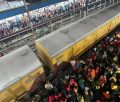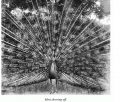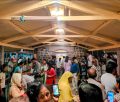SL bans student group from Jaffna campus

By Subash Somachandran
Authorities at Jaffna University in northern Sri Lanka prevented a group of student leaders from the Inter University Student Federation (IUSF) from visiting the campus on June 12. While the IUSF was the immediate target, the broader aim behind the ban was to suppress all political activity on the campus.
On hearing of the IUSF visit, the university’s vice chancellor, N. Shanmugalingan, informed the student union not to meet with them and denied permission for them to enter the university premises. A heavy police guard was deployed, creating a tense situation on the campus. Students said military intelligence personnel were loitering near the campus.
Shanmugalingan told the media he was acting on the orders of higher-ups but did not elaborate. He later issued a statement declaring: “We cannot allow [any group] to engage in politics with our students.”
An unidentified group visited the hotel where the IUSF group was staying and told them to leave Jaffna immediately. The pro-government media in Colombo claimed that a Jaffna university group had clashed with the IUSF. Students who spoke to the WSWS rejected the allegation and said that they suspected that the military or an associated paramilitary was involved.
More than a year after the defeat of the Liberation Tigers of Tamil Eelam (LTTE), Jaffna remains under the tight control of the Sri Lankan security forces. The military collaborates closely with paramilitaries such as those associated with the Eelam Peoples Democratic Party (EPDP), which is part of the coalition government in Colombo.
While irreconcilably opposed to the IUSF’s politics, the Socialist Equality Party (SEP) and the International Students for Social Equality (ISSE) condemn Jaffna University’s ban as an attack on the basic democratic rights of students.
The IUSF is the student wing of the Sinhala chauvinist Janatha Vimukthi Peramuna (JVP), which fully backed the government’s communal war against the LTTE and defended all of the crimes of the military. In the final months of the conflict, thousands of Tamil civilians were killed in the military’s bombardment of LTTE-held territory.
Like the JVP, IUSF leaders occasionally posture as socialists, but their politics are thoroughly mired in nationalism and communalism. The IUSF is notorious for its thuggery against political opponents, which has provided the pretext for police interventions and anti-democratic measures on campuses in Colombo and other parts of the country.
In a bid to disguise its politics, the IUSF group went to the Jaffna University campus in the guise of a humanitarian mission—to distribute wheelchairs and other equipment to students who lost limbs during the war. IUSF leader Udul Premaratna told the Jaffna media: “Actually there are no ethnic problems between the Sinhalese and Tamils of Sri Lanka, which had been created by politicians and they continue to add fuel to it so as to make their living.”
Nothing can hide the fact, however, that the IUSF and JVP backed the war that led to the loss of lives and limbs. The JVP supported the election of President Mahinda Rajapakse in 2005 and pressed him to ignore the 2002 ceasefire and restart the war. The so-called “ethnic problems” that led to the war were the product of decades of anti-Tamil discrimination, which the JVP supported and continues to support.
The real concern of the university authorities and the “higher ups” is not the IUSF but the broader politicisation of university students in Jaffna and elsewhere in Sri Lanka. Using the pretext of IUSF violence, the Rajapakse government revived legislation in March that effectively outlaws longstanding methods of student protest, including picketing, demonstrations and occupations of university premises. The regulations also provide a mechanism for banning political meetings and the distribution of leaflets that involve “coercion”.
These anti-democratic measures are reintroduced as the government prepares to impose the International Monetary Fund’s austerity demands. After winning parliamentary elections in April, Rajapakse gave the green light to Higher Education Minister S.B. Dissanayake to authorise the establishment of more private universities. In budget estimates released earlier this month, the government has targetted public education for further cutbacks.
University students in Jaffna suffered continuous repression during the war at the hands of the security forces. After Rajapakse plunged the country back to war in mid-2006, students were among hundreds of people who were murdered or “disappeared” by pro-government death squads.
Many students were part of the civilian population in the LTTE-controlled Vanni that was caught in the fighting. After the LTTE’s defeat, they were herded into huge military-run detention camps along with more than 250,000 civilians. Some have since been “resettled” but as one student told the WSWS: “We have no accurate details. Many students may be still with other detainees in the camps or taken away as ‘LTTE suspects’ to other detention camps.”
He added: “After the war, the security forces and pro-government groups sent their agents as students to spy on us. We know that. They try to find out if a student or a lecturer is engaged in politics other than that of the government or its supporters. This is a continuation of the repression. This happens while pro-government politicians operate freely.”
There is widespread discontent among students over the continued military occupation in Jaffna, as well as the suppression of democratic rights, and the lack of education facilities and jobs. Many are also critical of the LTTE and other parties. “All the Tamil political parties without exception support the Colombo government or are seeking its support. We don’t believe them,” one student said.
A fellow student explained: “We have no democratic rights on campus. To hold a meeting to discuss our rights or political issues, we have to get permission from the authorities. But if we ask for permission, it will be rejected. Earlier we engaged in struggles. If the management knew that we were talking like this to you, we would immediately be witch-hunted. We have so many problems. We have brought these to attention of the vice chancellor many times, but nothing has happened yet.”
Another student said: “Since 2006 we had been living under intense repression. The paramilitaries pasted up a list of names of our colleagues with death threats. These students were arrested. Many disappeared. Our people were murdered in Mullaithivu. Of course, we are against the administration preventing the IUSF from visiting here. But the IUSF has never defended us. Instead this organisation silently supported the war. They are communally minded. That is the main reason for their silence.” (wsws.org)
-
Book Shelf
-
 Book Review
DESTINY OF A DYSFUNCTIONAL NUCLEAR STATE
Book Review
DESTINY OF A DYSFUNCTIONAL NUCLEAR STATE
- Book ReviewChina FO Presser Where is the fountainhead of jihad?
- Book ReviewNews Pak Syndrome bedevils Indo-Bangla ties
- Book Review Understanding Vedic Equality….: Book Review
- Book Review Buddhism Made Easy: Book Review
- Book ReviewNews Elegant Summary Of Krishnamurti’s teachings
- Book Review Review: Perspectives: The Timeless Way of Wisdom
- Book ReviewNews Rituals too a world of Rhythm
- Book Review Marx After Marxism
- Book Review John Updike’s Terrorist – a review
-
-
Recent Top Post
-
 CommentariesTop Story
India’s Migration Dilemma
CommentariesTop Story
India’s Migration Dilemma
-
 Commentaries
Crowd Management Blues
Commentaries
Crowd Management Blues
-
 Meher Baba SpeaksNews
Meher Baba Loved Them Too…
Meher Baba SpeaksNews
Meher Baba Loved Them Too…
- Commentaries Record Pentagon spending bill and America’s hidden nuclear rearmament
-
 CommentariesNews
Ides of trade between India and Pakistan
CommentariesNews
Ides of trade between India and Pakistan
-
 Commentaries
How sustainable is the rhetoric of India-China Bhai-Bhai
Commentaries
How sustainable is the rhetoric of India-China Bhai-Bhai
-
 CommentariesTop Story
New Set of Diplomatic Strains with Canada
CommentariesTop Story
New Set of Diplomatic Strains with Canada
-
 News
Ratan Tata’s Legacy
News
Ratan Tata’s Legacy
-
 Commentaries
India’s Strategic Push on the World Stage
Commentaries
India’s Strategic Push on the World Stage
- Commentaries Veils of Resistance
-
AdSense code















